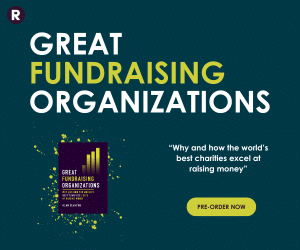Surface-level ‘cookie-cutter’ business-charity partnerships are bad for business and society, warns a new report on the benefits and challenges of cross-sector collaboration, out today.
By Pro Bono Economics A prosperous partnership: supporting better collaboration between charities and business, was supported by Benefact Group, and developed in partnership with FTI Consulting, Shoosmiths, and Pilotlight.
Drawing on consultations with charities, businesses, and intermediary organisations, it highlights how short-termism and misaligned values waste money and hold back business-charity partnerships from reaching their potential. It also explores how those that go beyond surface-level initiatives can create lasting, meaningful impact for society, the economy, and the environment.
Advertisement
The research found a number of common barriers to partnership success, include power imbalances, short-termism, and misaligned goals.
At the same time, it found that partnerships anchored in a shared purpose are more likely to be sustainable, adaptable, and impactful. Examples of successful partnerships include those with a thematic, place-based, or personal connection, where both parties are fully committed to the cause.
It also highlights key benefits for businesses from partnering with charities. As well as positive PR, employees engaged in volunteering report improved skills, greater engagement, and better health. Businesses also benefit from reduced absenteeism, increased productivity, and enhanced reputational value.
Factors for success
The report outlines four key factors for thriving partnerships:
- Developing a shared purpose: Aligning on a meaningful, shared mission is essential for long-term success.
- Prioritising clear communication: Open, two-way communication ensures mutual understanding and helps partnerships adapt to changing circumstances.
- Establishing structure and strategy: Strong partnerships require clear goals, agreed-upon strategies, and regular reviews to stay on track.
- Adopting a long-term focus: Commitment to long-term collaboration creates deeper impact, allowing partnerships to grow and evolve over time.
Partnership case studies
It also includes successful examples of partnerships: Benefact Group and Gloucestershire Deaf Association, which is a thematic partnership focusing on supporting the Deaf community through awareness and training; Strand Palace Hotel and Only a Pavement Away, which helps individuals facing homelessness find jobs in the hospitality sector; and Octopus Group and Thames21, who are partnering to clean up London’s rivers and support sustainability efforts.
Matt Whittaker, CEO at Pro Bono Economics, said:
“Business-charity partnerships can – and do – change lives when done right. But too often they fall short of their potential. Short-term charity of the year efforts pit organisations against each other in beauty parades that are only skin deep, while some charities continue to invent work for corporate volunteers to secure the donations that accompany the activity. Ultimately effort is wasted, relationships break down and opportunities to make a difference are missed.
“By committing to long-term, meaningful collaboration that is underpinned by open communication and clear strategic alignment, businesses and charities can create value not just for themselves but for society as a whole. Getting there requires going beyond cookie cutter approaches, but it doesn’t have to be complicated. We’ve set out simple principles and practical steps designed to support more purposeful partnerships.”
Chris Pitt, Group Impact Director at Benefact Group, said:
“As the UK’s third largest corporate donor with a purpose to contribute to the greater good of society, giving has always been at the heart of what we do. But we understand that successful charity partnerships go beyond financial donations. Benefact Group works to build deeper relationships with charities by offering a range of support and resources to enable charities to become more resilient and successful, as well as offering workplace volunteering opportunities that meet charities’ needs.
“As this report shows, the best business charity partnerships are defined by a shared purpose, clear goals and a long-term commitment on both sides. For us, the business benefits of these kinds of partnerships are manifold – increased awareness of societal issues, learning opportunities from charities that are specialists in their fields, and more engaged colleagues thanks to meaningful volunteering opportunities. We would urge all businesses to consider the report’s practical recommendations to drive better partnerships that will ultimately benefit society.”
![]()

